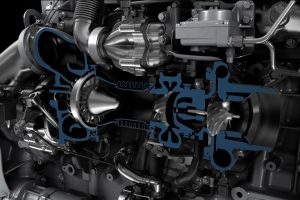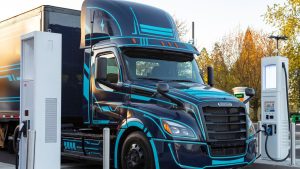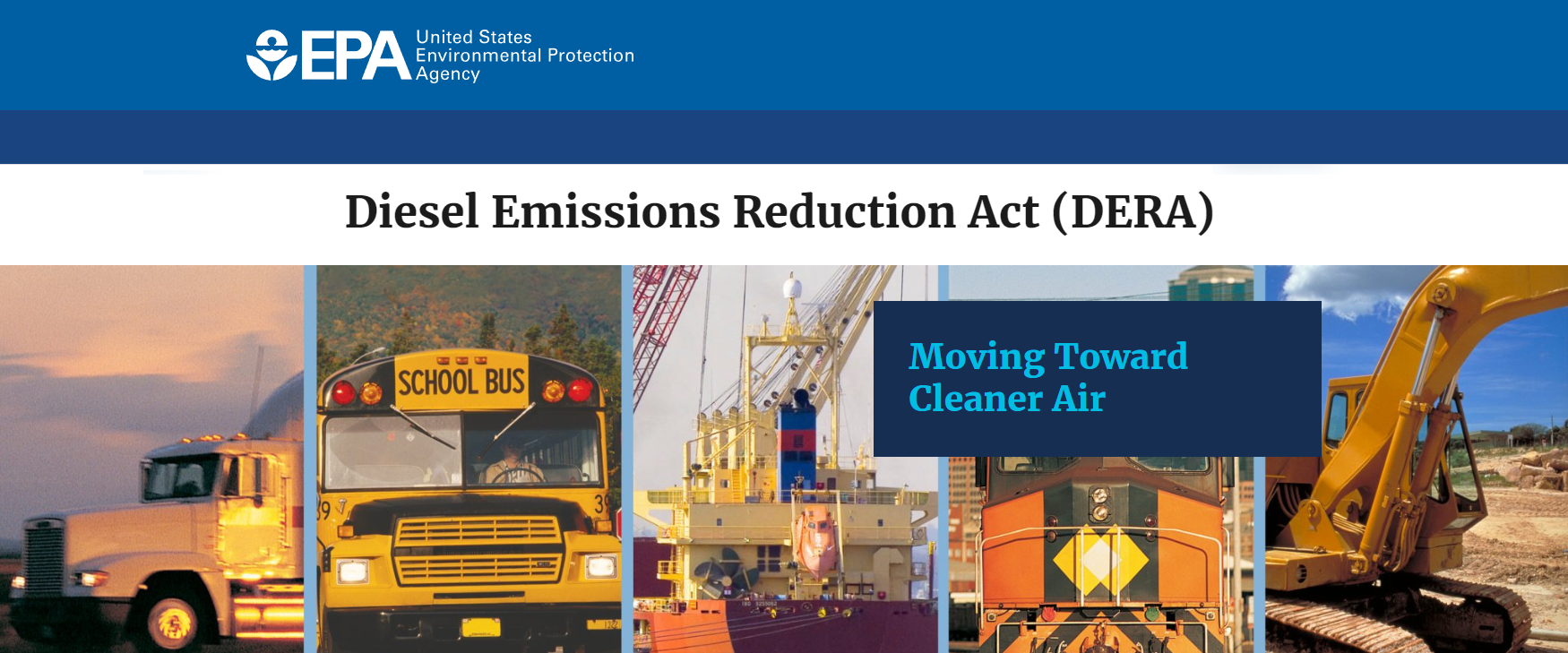- Discover the transformative impact of the DERA Emissions Reduction initiative on the trucking industry in 2024—How has this pivotal legislation driven technological advancements and substantial emission reductions?
- Explore how the trucking industry’s shift towards cleaner diesel technologies is saving millions in health costs and fuel consumption, in part to DERA Emissions Reduction.
- Uncover the future of diesel engines—What does the recent Senate approval of DERA mean for emissions standards and the trucking industry’s environmental responsibilities?

In 2024, DERA continues to drive significant improvements in the trucking industry’s environmental impact.
In 2024, the DERA emissions reduction initiative celebrates a pivotal moment with the Senate’s passage of the bill, set to enhance the trucking industry by continuing significant improvements in diesel technology and emissions standards, directly influencing air quality and operational efficiencies across the United States. For more news and updates on the Diesel Engines, check out this page.
DERA Emissions Reduction’s Influence on the Trucking Industry
Since its inception in 2005, the Diesel Emissions Reduction Act (DERA) has been a cornerstone of environmental and public health initiatives, with a renewed focus on the trucking industry. This sector has seen tremendous benefits from federal funding aimed at upgrading older diesel engines, thus enhancing air quality and reducing maintenance costs.
DERA’s Broad Impact and Senate Endorsement

Every dollar spent on DERA upgrades yields significant health and economic returns for the trucking industry.
Recently applauded by the trucking industry, the Senate’s passage of the DERA bill of 2023, which reauthorizes the program through 2029 with an annual budget of $100 million, marks a significant commitment to continuing environmental responsibility in partnership with the trucking sector. This legislative milestone is expected to further reduce nitrogen oxide and particulate matter emissions, which have already decreased by 99% over recent decades thanks to advancements in diesel technology. To dive deeper into the topic of Legislation and its role in the trucking industry, follow this link.
Enjoying our insights?
Subscribe to our newsletter to keep up with the latest industry trends and developments.
Stay InformedHealth Benefits and Economic Efficiency from DERA Emissions Reduction
The program’s investment returns are significant, with every dollar spent on diesel upgrades not only improving health outcomes but also boosting economic efficiency within the trucking industry. Chris Spear, President & CEO of the American Trucking Associations, provided a compelling testament to these benefits:
Chris Spear credits DERA with a 99% reduction in truck emissions over decades, showcasing dramatic environmental progress.
“Through the trucking industry’s sustained commitment to environmental responsibility and the government’s constructive partnership, heavy-duty truck tailpipe emissions of nitrogen oxide and particulate matter have sharply declined by 99% over the past several decades. The DERA program has been pivotal to this success, incentivizing motor carriers to embrace innovation and adopt the newest, cleanest equipment available,” said Spear. “We are grateful that the Senate voted unanimously to continue this tried-and-true model of working collaboratively with our industry to strengthen the supply chain, improve air quality and bolster domestic manufacturing jobs, and we are particularly appreciative of U.S. Senators Tom Carper and Shelley Moore Capito’s leadership in getting this bill across the finish line.”
Explore additional insights into the Economic Impact in transportation, explore this page.
Modernization and Fuel Savings
Through DERA, tens of thousands of vehicles have been upgraded, saving over 520 million gallons of fuel and reducing emissions drastically—today’s trucks emit the equivalent of what one truck did in 1988. Moreover, a newly manufactured truck now produces half the CO2 emissions of one made in 2010. Stay updated on the latest trends in Fuel Efficiency across various insights, check out this link.
Addressing Industry-Specific Challenges

Modernized trucks now emit half the CO2 of those manufactured just over a decade ago, thanks to DERA-funded upgrades.
With new funding and continued support, DERA targets the replacement of old diesel engines with cleaner, modern technologies, significantly impacting the trucking industry. This includes support for technology-neutral innovations and alternative fuels like renewable diesel, which offers a lower lifecycle carbon footprint than electric vehicles at a fraction of the cost. Understand the strategies being employed in Alternative Fuels to optimize outcomes, explore this link.
Engaging with Disadvantaged Communities
DERA continues to prioritize funding for projects in disadvantaged communities, with the aim of directly addressing the environmental impacts of trucking operations and enhancing public health outcomes in these areas. For more information on the Environmental compliance and changes trucking, visit this link.
Technological Innovations and Cost Comparisons

Nearly $1 trillion would be needed for full electrification of the U.S. truck fleet—DERA offers a cost-effective alternative.
The 2024 focus includes facilitating the integration of zero-emission and alternative fuel technologies. Interestingly, a study commissioned by the Clean Freight Coalition highlighted that full electrification of the U.S. commercial truck fleet would require nearly $1 trillion in infrastructure investments, showcasing DERA’s cost-effectiveness compared to more extensive electrification efforts. Stay abreast of the latest innovations in Trucking Tech, click here.
Legislative Support and Industry Endorsement
The recent Senate approval of DERA not only reinforces its role within the trucking industry but also highlights the bipartisan effort to maintain and expand this essential program. Industry leaders continue to support DERA, recognizing its pivotal role in advancing environmental standards and economic benefits. For more details on Gov Grants supporting trucking industry improvements, visit this link.
Future Directions for DERA in Trucking
With the latest reauthorization, DERA is set to continue influencing the trucking industry, focusing on sustainable and economically viable technological innovations that will reshape the landscape of commercial transportation and environmental sustainability.
Significant Milestones in DERA Emissions Reduction
- Senate Approval: The Senate’s recent unanimous vote to reauthorize DERA through 2029, securing $100 million annually for cleaner diesel technology.
- Fuel and Health Cost Savings: The adoption of newer, cleaner diesel technologies has led to the saving of over 520 million gallons of fuel and significant reductions in health-related costs.
- Technological Innovations: Emphasis on the transition to low-emission and alternative fuel technologies, with DERA funding supporting not just traditional upgrades but also innovative approaches like renewable diesel.
- Community Impact: DERA’s strategic focus on disadvantaged communities, helping to reduce emissions where they impact public health the most.
Conclusion: DERA’s Strategic Role in the Trucking Industry

With the latest reauthorization, DERA is set to reshape the commercial transportation landscape.
As DERA progresses, its ongoing adaptation to industry and environmental challenges will further enhance its role in supporting the trucking industry, driving improvements in air quality, and contributing to economic growth. The program’s success in fostering government-industry partnerships remains a cornerstone of its strategy to achieve significant environmental and public health improvements.
Final Thoughts
Observations about the Diesel Emissions Reduction Act (DERA) suggest that the program remains a significant component of the United States’ environmental strategy. The continued reauthorization and funding indicate ongoing support for its goals of reducing harmful emissions from diesel engines. The collaboration between government bodies and the trucking industry, as well as the focus on technological innovation and public health, highlights the multifaceted approach required to address complex environmental challenges. Moving forward, the effectiveness and adaptability of such programs will likely play a crucial role in shaping sustainable practices within the industry.
Explore Additional Resources on DERA Emissions Reduction
- EPA’s DERA Funding Opportunities: Learn more about the funding and grants available under DERA, including application processes and eligibility criteria at the EPA’s DERA Funding page.
- Trucking Industry Commends DERA: Read about the trucking industry’s response to the Senate’s passage of the Diesel Emissions Reduction Act at American Trucking Associations.
- Insights on State-Level DERA Programs: Explore how DERA funds are allocated to states and territories, supporting local diesel emissions reduction programs, at EPA’s State Grants page.
- Legislative Updates and Reports: Stay informed on the latest legislative actions and reports to Congress regarding DERA by visiting GovInfo.
- DERA Competitive Grant Funding: Discover the latest updates on the $115 million available for projects to reduce harmful commercial vehicle emissions under DERA’s National Grants program at School Transportation News.
- Senate Support for DERA: Understand the legislative backing and the bipartisan effort to reauthorize DERA through fiscal year 2024, ensuring continued support for emissions reduction technologies at Senator Tom Carper’s page.
- Congressional Insights on DERA: Explore the statements and legislative insights from Congresswoman Chellie Pingree on the Diesel Emissions Reduction Act at Congresswoman Pingree’s page.






















